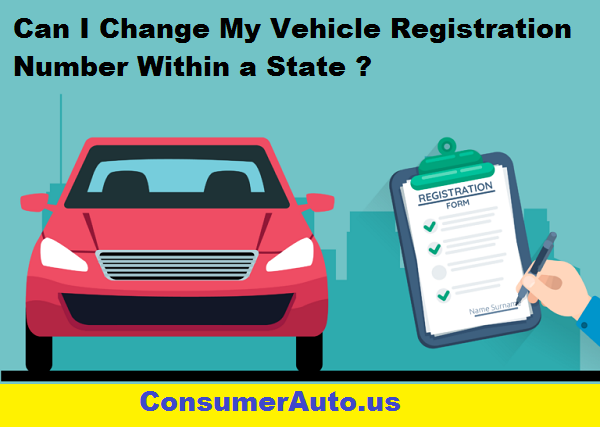Vehicle registration is a fundamental process that links a vehicle to its owner and provides it with a distinctive identity. Every vehicle on the road is assigned a registration number, often referred to as a license plate number. This alphanumeric code not only distinguishes your vehicle from others but also plays a crucial role in various legal and administrative matters.
Understanding Vehicle Registration Numbers
A vehicle registration number is essentially a code that comprises a combination of letters and numbers. It serves as a unique identifier for your vehicle, allowing authorities to track ownership, monitor compliance with road regulations, and manage traffic efficiently. When you register your vehicle, you are issued a registration certificate that contains this alphanumeric code.
Importance of Registration Numbers
The significance of registration numbers cannot be overstated. They enable authorities to quickly identify vehicles involved in accidents, criminal activities, or traffic violations. Moreover, they aid in tracking vehicle history, conducting recalls, and ensuring road safety. The Regional Transport Office (RTO) is responsible for assigning registration numbers according to specific guidelines.
General Rules of Vehicle Registration
Under the prevailing rules, changing a vehicle registration number within a state is generally prohibited. This rule is in place to maintain the integrity of the registration system, prevent fraudulent activities, and uphold legal standards. Each registration number is meticulously allocated to a vehicle, and altering it without valid reason can create confusion and complications.
Exceptions to the Rule
While the rule stands firm, there are specific scenarios in which changing a registration number within a state might be permissible. Government employees being transferred to a different state, diplomats or foreign nationals acquiring new vehicles, and vehicle dealers selling across state borders are examples of such situations. However, eligibility for change is subject to the unique circumstances of each case.
Procedures for Changing Vehicle Registration Numbers
If you find yourself in a situation that warrants changing your vehicle’s registration number within a state, follow these steps:
- Submit an Application: Begin by submitting an application to the respective RTO. Clearly state the reason for the change and provide all necessary details.
- Provide Required Documents: Along with the application, submit essential documents. These typically include the original registration certificate, valid insurance certificate, and Pollution Under Control (PUC) certificate.
- Pay Prescribed Fees: Pay the required fees as specified by the RTO. This fee covers administrative and processing costs.
- Undergo Vehicle Inspection: The RTO may require your vehicle to undergo an inspection to ensure its roadworthiness and compliance with regulations.
- Receive New Registration Certificate: Upon approval, you will be issued a new registration certificate with the updated number.
Please note that procedures might vary slightly from state to state, and it is advisable to consult your local RTO for accurate information.
State-Specific Variations
It’s important to recognize that different states may have variations in the procedures, required documents, and fees for changing a vehicle’s registration number. Contacting the respective RTO is crucial to obtaining accurate and up-to-date information. Here are a few examples of potential variations across states:
- Some states may require additional documents, such as an address proof or an NOC from the previous RTO.
- The fees for changing a registration number can differ significantly between states.
- Certain states may have specific time limits for applying after meeting the eligibility criteria.
California DMV Registration Renewal: A Step-by-Step Guide
Frequently Asked Questions (FAQs)
Q: Can I change my vehicle registration number if I just want a personalized number?
A: Generally, personalized registration numbers are subject to separate procedures and fees. Check with your local RTO for more information.
Q: What should government employees do if they are transferred to another state?
A: Government employees facing a transfer to another state may be eligible to change their registration number. Provide the necessary documents and follow the prescribed process.
Q: Can I change my registration number if I move to a different city within the same state?
A: In most cases, changing the registration number within the same state due to a change of city might not be allowed. Consult your local RTO for guidance.
Q: Is there a time limit for applying to change the registration number after meeting the eligibility criteria?
A: While some states might have a specific time limit, it’s advisable to initiate the process as soon as possible after meeting the eligibility criteria.
Q: How long does the process of changing a registration number usually take?
A: The processing time can vary based on factors such as the RTO’s workload and the completeness of your application. It’s recommended to inquire with your local RTO for an estimated timeline.
Q: What documents do diplomats or foreign nationals need to provide for changing their vehicle’s registration number?
A: Diplomats and foreign nationals may need to furnish documents such as their diplomatic ID, passport, and other relevant papers. Consult your local RTO for precise requirements.
Q: Can individuals other than those mentioned (government employees, diplomats, vehicle dealers) change their registration numbers within a state?
A: Generally, the scope for changing registration numbers within a state is limited to specific circumstances, as mentioned earlier.
Conclusion
In conclusion, changing your vehicle registration number within a state is a process governed by strict regulations. While exceptions exist for certain scenarios, the general rule emphasizes the uniqueness and permanence of registration numbers. We urge you to reach out to your local RTO for accurate information tailored to your situation. By adhering to the prescribed procedures and requirements, you can navigate this aspect of vehicle ownership with confidence.
For further information and state-specific guidelines, please visit official RTO websites and related government sources.
Remember, your vehicle registration number is more than just an identifier – it’s a testament to your commitment to road safety and legal compliance.







